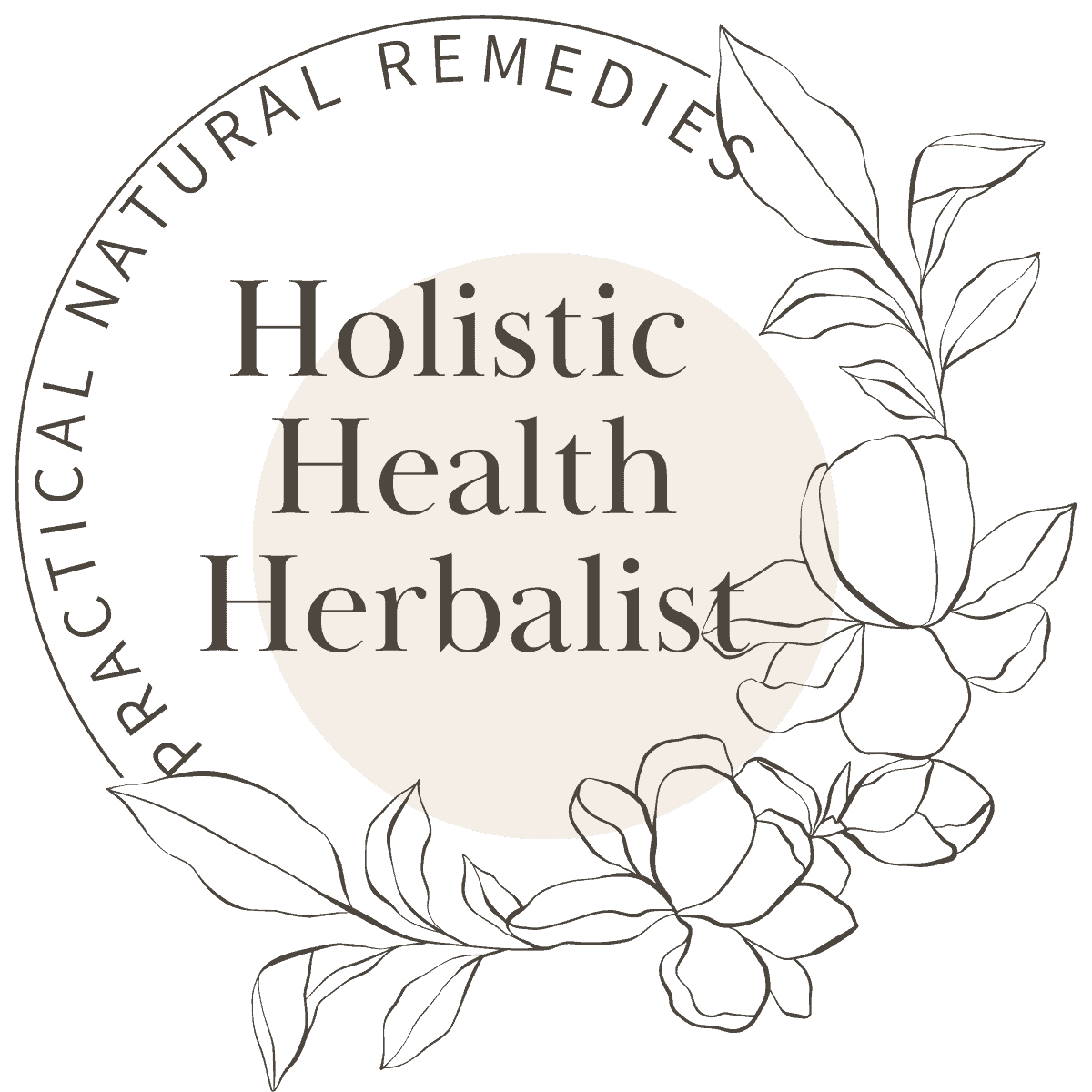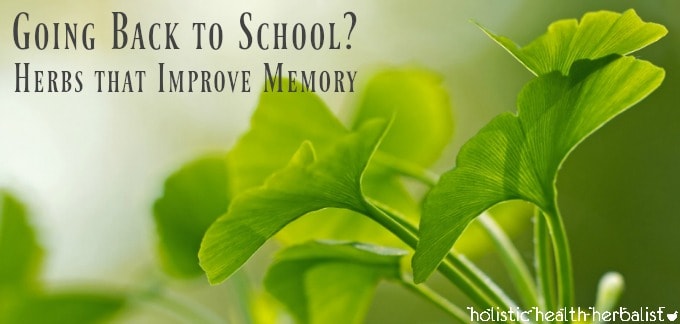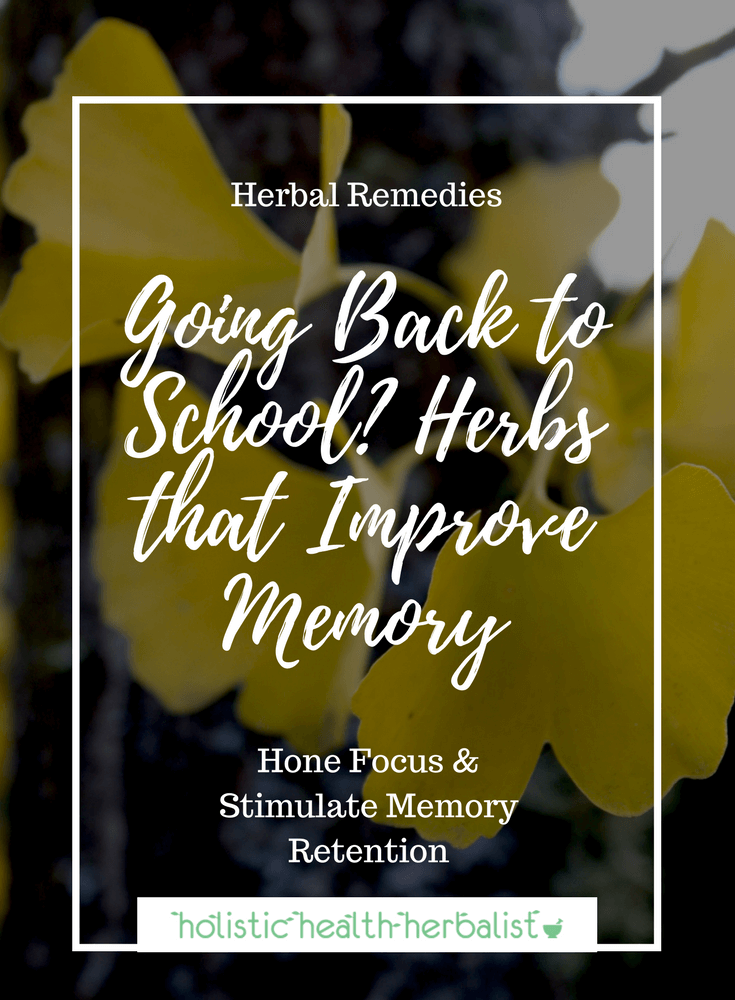Back to the grind? Herbs are here to help!
Many of us are returning to school now with the absence of winter intersession and are feeling a bit bogged down from the holidays. It's amazing how in just a few weeks, we can effectively forget most of what we've learned in the past few months! But not to fear, herbs aren't just good for colds and flu. Some of them in fact, are quite efficient at promoting memory retention and have been used for centuries as memory aids and attention pick-me-ups.
Herbs That Improve Memory
There are a few herbs readily available in your spice cabinet that boast some amazing memory enhancing effects. One of which is...
Rosemary
Rosemary has been used since the times of ancient Rome. Students were known to braid fresh rosemary sprigs into their hair during examinations to stay alert and attentive. But you don't have to to go walking around with rosemary on your head! Its internal benefits are just as potent as its aromatic qualities.
Rosemary Tea
Making a tea is one the easiest ways to take rosemary for its memory enhancing benefits.
Simply put 1 teaspoon of dried rosemary into a mug and pour boiling water over it. You can use fresh rosemary for a stronger effect, I usually snip off a 1-2 inch piece - make sure it's clean.
Cover the mug with a small plate to keep the essential oils of the rosemary from evaporating while the tea steeps.
Steep covered for only a few minutes as rosemary tea can get far too strong in flavor if you're not careful, even for an herbie like me!
Sip this tea 2-3 times a day as needed for mental clarity and stress relief.
This tea is best taken before class or exams and even during study time for best results. Rosemary stimulates nourishing blood flow to the brain keeping you alert and focused. It also wards you against catching a cold because rosemary is full of nutrients that stimulate your immune system. So chances are, you may not be getting sick anymore from germy desks at school!
Another handy way to take rosemary is by tincture. This is my preferred method because it fits nicely and un-hamperingly in my school bag.
Making your own rosemary tincture is quite simple too:
How to Make Rosemary Tincture
All you need is a small jar, 80 proof vodka (100 proof is better if it's available), and fresh or dried rosemary (again, fresh is better).
If you're using dried rosemary, simply fill the little jar halfway and fill the rest of the way up with vodka.
If you're using fresh rosemary, fill the jar completely with rosemary, cutting it up into pieces as you go, and then fill to the top with vodka.
Shake the jar daily for the first week, and then let it sit for another 5 weeks in a cool dark place.
You'll notice that your tincture will turn a beautiful vibrant green color. At the end of 6 weeks, strain your tincture and bottle in dropper bottles or just use a small spoon to measure out a dose when needed. You'll have plenty to last a couple semesters and you'll be saving a lot of money compared to buying the tincture at Whole Foods.
If you don't have time to make your own, look for rosemary tincture at your local health foods store. They may even carry my favorite memory tonic by Herb Pharm called Brain and Memory Tonic. This tincture has several herbs in it that work together for great memory retention.
Rosemary Essential Oil
Another amazing memory tonic is rosemary essential oil. Simply smelling its aroma for a few deep breaths while studying will help enhance memory retention and also lower cortisol levels in a matter of minutes! The day of your exam, simply wear a drop or two of rosemary essential oil on your wrists and sniff it while taking your test when trying to recall information.
Sage
Another herb that you might find in your kitchen that works well for memory is rosemary's sister sage.
Sage can be used in much the same way as rosemary, as a tea or as a tincture. It enhances memory by protecting a component in our nervous system known as acetylcholine. This neurotransmitter is involved in our ability to think, learn, and remember things, so you can see how sage can be a good herbal ally to have.
Sage is also nice to use when you experience nervous sweating as it greatly reduces the amount of sweat produced.
Using sage as an essential oil should be considered with caution as it is a hormone tonic.
Ginkgo Biloba
Known for its amazing ability to enhance memory, ginkgo has been around for thousands of years. It's ability to promote blood circulation to the brain has been proven to enhance memory retention, cognitive function, and focus in a number of clinical studies across the globe. It's one of my favorite herbs that improve memory and I often use it during school.
Ginkgo Biloba supplements are available in various forms including:
Standardized extracts containing 24 - 32% flavonoids and 6 - 12% terpenoids
Capsules
Tablets
Liquid extracts like tinctures and glycerites
As a tea
Ginkgo is also good for improving circulation in the extremities which is especially helpful for students that sit for hours in class or while studying.
With daily use, you can expect to see vast improvements in cognitive function such as thinking more clearly, learning faster, and retaining information better after about 4-6 weeks.
Rhodiola
Rhodiola is one of my favorite herbs and one of the most potent and multi-purpose adaptogens out there. Adaptogens are herbs that support and nourish your body in ways that allow it to react to stress in the best way possible.
So, not only does rhodiola boost memory, it also keeps your stress levels down and manageable...two key ingredients for success at school.
Rhodiola increases blood circulation to the brain and improves its bioelectrical activity over time (usually a couple weeks), keeping you alert and focused when everyone else is snoring at their desks.
I like to take rhodiola as a liquid-capsule or as a tincture for convenience.
Take care if you have a dry constitution as this will aggravate dry body types.
Honorable Mentions For Herbs That Improve Memory
Gotu Kola- Supports mental function, memory and concentration, enhances mental clarity and improves brain and peripheral circulation.
Skullcap- Protects against memory impairment and offers calming and relaxing properties.
Lemon Balm- Improves brain function such as memory, judgment, and problem-solving. Lemon balm also eases anxiety and stress.
All of these can be found or special ordered at your local health food store and can be taken as extracts, capsules or as teas (though I don't recommend taking skullcap as a tea...blegh!).
You may also enjoy reading:
The Best Essential Oils for Back to School
The Top 10 Anti-hangover Herbal Remedies
How to Relieve Gas- The Herbalist’s Way
All Natural Herbal Earache Remedies
Herbal Remedies for Runny Nose
Herbal Remedies for Wet Cough








Tendai says
Waaaaw that gud information. Hw cn i get them i am stayng in Namibia whre cn i buy this thinks
Kat says
Where can you find Rhodiola? Is it sold only at places like Whole Foods or do stores like World Market, or normal grocery stores carry it?
Tash says
Hi Kat,
I've only been able to find Rhodiola at health food stores so far. If your local health food store has an alternative medicine section, I bet they have it, or can at least order it for you. If they don't have Rhodiola, see if they have Holy Basil instead, as it has very similar effects (you can find this herb most easily as a tea).
If you have trouble finding it locally, try mountainroseherb.com =) You can find most everything you'll ever need in the world of herbs here.
xoxo Tash